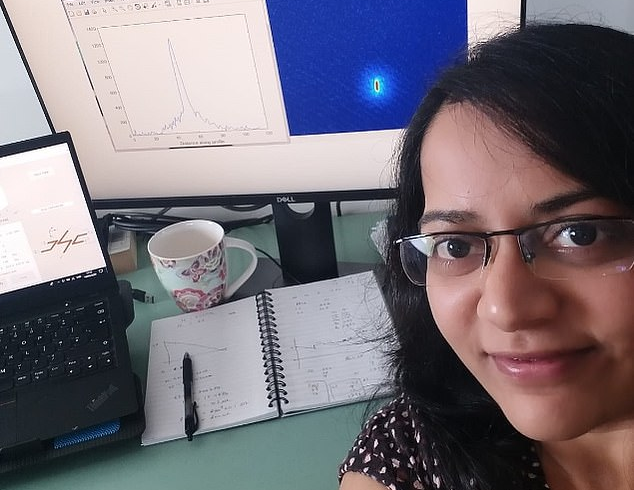We’re all aware of at least 3 of the 4 forms in which we know matter can exist: solid, liquid, gas, and the less common plasma state. However, there’s another state that’s less commonly known about.
A UK physicist, Dr Amruta Gadge, has created the fifth state of matter using quantum technology. What’s even more amazing is that she’s done it all remotely from her living room because of the UK’s coronavirus lockdown.
What is Bose-Einstein Condensate (BEC).
In the mid-1920s, Albert Einstein and Indian physicist Satyendra Nath Bose predicted that quantum mechanics can force a large number of particles to behave like a single particle. This heralded research into the so-called fifth matter and is known as a Bose-Einstein Condensate (BEC).
However, it wasn’t until June 1995 that scientists created the world’s first BEC, by cooling a gas of around 2,000 rubidium atoms. A BEC consists of a cloud of hundreds of thousands of rubidium atoms, cooled down to temperatures over a billion times colder than freezing. Just above absolute zero, atoms take on a different property and coalesce into a single quantum object. This object can be affected by very low magnetic fields.
What has Dr Gadge acheived
Dr Amruta Gadge (University of Sussex) created a BEC, in which extremely cold atoms clump together and act as if they are a single entity. She was able to control lasers and radio waves with her computer and create the BEC from her living room two miles away from the lab.
This may provide a blueprint for operating quantum technology remotely in inaccessible environments such as space or underwater.
Ch2>What is Quantum Computing – and what has been achieved, so far
Quantum technology uses the ‘spooky’ effects of quantum physics to vastly speed up information processing. Its believed this could help scientists to build the most powerful computer on Earth.
Peter Krüger, professor of experimental physics at the University of Sussex said,
‘We are all extremely excited that we can continue to conduct our experiments remotely during the lockdown, and any possible future lockdowns,’.
‘Enhancing the capabilities of remote lab control is relevant for research applications aimed at operating quantum technology in inaccessible environments such as space, underground, in a submarine, or in extreme climates.’
The research team are developing their sensors to be applied in areas such as electric vehicle batteries, touch screens, solar cells and medical advancements such as brain imaging.
national quantum computing network
The University of Sussex is part of the UK’s national quantum computing network. It was established in 2013 with the remit to commercialise the first universal quantum computer and published its blueprint for how to build a quantum computer in 2017
In October 2019, Google claimed to have made a quantum computing breakthrough with a processor that performs in minutes, a calculation that would take classical computers 10,000 years.
However, Google’s big rivals in quantum technology research dispute Google’s claim that it has achieved the ‘quantum supremacy’ – solving problems that no classical machine can. Essentially thats because technically this is achievable on a classical computer – though it would take 10,000 years to accomplish!
for more information visit here




